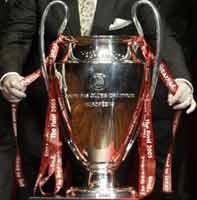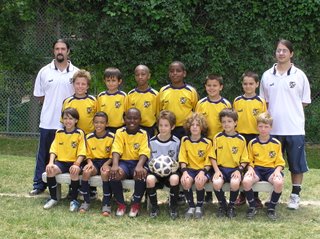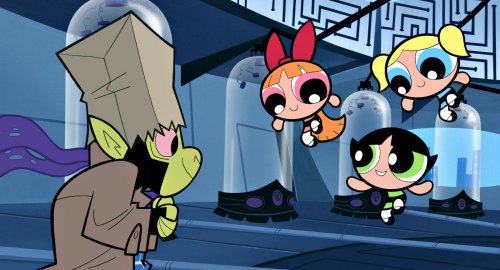Pick a Team, Any Team
 Antonio's not normally a fan of ESPN's coverage of football - why, for God's sake, do they let Tommy Smythe within ten miles of a microphone when his understanding of the sport is as tenuous as Pippo Inzaghi's grasp of the offside rule? But this story on their website is definitely worth a read, especially if, like my pal Shaky, you're thinking about starting to follow English football on a regular basis. It's irritatingly Amero-centric and occasionally inaccurate, but definitely worth a gander (many thanks to L'ecrivain Broadhurst for the link).
Antonio's not normally a fan of ESPN's coverage of football - why, for God's sake, do they let Tommy Smythe within ten miles of a microphone when his understanding of the sport is as tenuous as Pippo Inzaghi's grasp of the offside rule? But this story on their website is definitely worth a read, especially if, like my pal Shaky, you're thinking about starting to follow English football on a regular basis. It's irritatingly Amero-centric and occasionally inaccurate, but definitely worth a gander (many thanks to L'ecrivain Broadhurst for the link).North Americans who come to the sport late in life face an awkward spell while getting into the game. One isn't really supposed to be able to choose a sports team, after all. You're supposed to inherit one from your father, brother or uncle. The idea of selecting a team on a basis of subejctive or objective criteria seems very weird, but as more and more North Americans become intrigued by football, they are having to do precisely this.
I came by Arsenal the roundabout way - my Expos and Jets had been cruelly snatched away from me by heartless Americans, and so, looking for a new sport, I found a successful team with some gallic flair and literary cache. When people at Highbury ask me how I became a fan, I usually answer: Vieira, Petit and Hornby (I'll usually leave that last one out if the person asking is a big fella with a shaved head and a tattoo). My son, on the other hand, comes by Arsenal the easy way: he either watches Arsenal or he doesn't come to games with me. He loves Arsenal.
My brother settled on West Ham after realizing he had no street cred in London as a ManU supporter. Another pal came to support on Newcastle (poor bastard, Murph) after concluding that they were a respectable northern alternative to rich Londoners and over-rated Mancunians and Liverpudlians.
(Gratuitious aside. One word, Murph: HA! Well, never mind, at least there's a decent irishman in the squad now... )
We all have our reasons for supporting a team - but in this respect, North Americans are fundamentally different from Europeans. We may love the same teams - indeed, with our superior cable packages we may even get to watch more games - but we weren't for the most part born with our teams (first generation latins excepted).
Our fandom is by choice, and for that reason , we can never really relate to the pain or the joy of those whose loyalties are there from birth. I am an Arsenal fan and member, but I am not of Arsenal and never really can be. This trans-Atlantic difference will only really narrow when the next generation (like my son) of fans grow up.
Got a story about how you came to support your team? Write into my comments section, below.
















